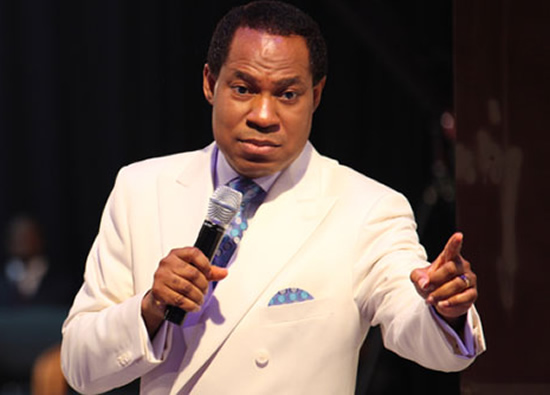Pastor Chris Oyakhilome, the founder of Christ Embassy, recently addressed a concerning trend within his church and the broader gospel music scene: the prioritization of earthly gain and fame over genuine spiritual devotion. He lamented the transformation of worship services into entertainment venues, where the focus shifted from prayer and the word of God to performances and personal aggrandizement. This shift, according to Oyakhilome, was largely driven by gospel singers who, while talented, seemed more interested in building their careers and financial success than serving God through their music. He observed that many of these singers were active participants in praise and worship sessions but often absent during prayer meetings, suggesting a lack of genuine commitment to spiritual growth and communion with God.
Oyakhilome’s critique extends beyond individual singers to encompass the broader culture of worship within the church. He argued that the music itself had become increasingly worldly, reflecting the secular influences that permeated the singers’ priorities. Instead of fostering a spirit of reverence and devotion, the music, in his view, became a vehicle for self-celebration and entertainment. The singers, he claimed, were no longer leading the congregation in worshiping God but were, in essence, performing for an audience, prioritizing their own recognition and applause. This commercialization of gospel music, where singers began charging fees for their services within the church, further solidified the shift from spiritual service to professional performance. The church, in Oyakhilome’s view, had become a marketplace for musical talent rather than a sanctuary for spiritual seekers.
The pastor’s concern stems from a deeper observation about the encroachment of worldly values into the sacred space of the church. He believes that the pursuit of fame and fortune by gospel singers represented a broader trend of secularization within the Christian community. This trend, he argues, diluted the spiritual essence of worship and undermined the church’s core mission of spreading the word of God and nurturing the spiritual growth of its members. He lamented the loss of focus on prayer, soul-winning, and genuine devotion, replaced by a culture of entertainment and self-promotion. This, he believes, marked a dangerous departure from the true purpose of the church.
Initially, Oyakhilome admitted to celebrating the talents and contributions of these gospel musicians. However, as he became increasingly aware of their shifting priorities, he felt compelled to intervene. He attempted to guide them back to a path of genuine spiritual service, emphasizing the importance of prioritizing God over personal gain. However, his efforts were met with resistance. The singers, accustomed to the adulation and financial rewards of their musical careers, were unwilling to relinquish their newfound status and income. The “little money,” as Oyakhilome described it, had become a significant motivator, overshadowing their commitment to spiritual service.
Faced with their refusal to change, Oyakhilome made the difficult decision to part ways with these musicians. He believed that their continued presence within the church would further perpetuate the culture of worldliness he was striving to counter. While acknowledging the pain of this separation, he emphasized that it was necessary to protect the spiritual integrity of the church and ensure that its focus remained on God. He expressed hope that these singers would eventually recognize the error of their ways and return to a path of genuine spiritual devotion.
This incident, as described by Pastor Chris Oyakhilome, serves as a cautionary tale about the potential pitfalls of mixing spiritual service with worldly ambition. It highlights the importance of maintaining a clear focus on God and resisting the temptations of fame and fortune. It also underscores the responsibility of church leaders to safeguard the spiritual integrity of their congregations and to guide their members towards a path of true devotion. While Oyakhilome acknowledges the value of music in worship, he emphasizes that it must serve as a vehicle for glorifying God, not for self-promotion or personal gain. The ultimate goal, he argues, should be to foster a genuine connection with God and to nurture the spiritual growth of individuals within the church community.














